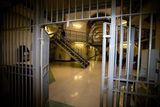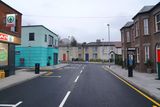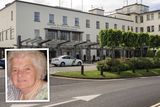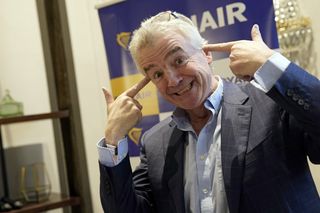Average mortgage hikes of up to €900 a year as European Central Bank is poised to raise rates again
European Central Bank president Christine Lagarde. Photo: Michael Probst/Pool via Reuters
The European Central Bank (ECB) is poised to deliver a hammer blow to homeowners, with a second hefty rise in interest rates today.
Rates could go up as much as 0.75 percentage points in a move that would add €900 to the annual cost of repayments on a typical tracker mortgage. It follows a 0.5 percentage-point rise in July.
The combination of a significant rise this week on top of the July hike would mean a family on a €200,000 tracker rate would have to pay €117 extra a month.
Over a full year, this would amount to €1,400 in higher repayments.
Read more
There are close to half a million mortgage account holders on either tracker or variable rates that are vulnerable to higher European interest rates.
The three main banks spared variable-rate customers from the ECB rise in July, but that is not expected to happen this time. Variable-rate customers on a €200,000, 25-year mortgage will face an additional €78 in monthly repayments in the event of a 0.75 percentage-point rise.
Over a year, this amounts to an extra €930 in mortgage costs.
Economists said it was not certain the rate rise today would be 0.75pc – it could be another 0.5 percentage-point rise – but they still expected rates to rise by 1.5 percentage points by the end of the year.
Goodbody Stockbrokers eco- nomist Dermot O’Leary said it was a toss of a coin whether rates rise by 0.5 or 0.75 percentage points.
Wholesale money markets were pricing in the higher increase, he said, but a severe energy-related recession might mean a 0.5pc rate would be adopted.
However, Mr O’Leary said he expected the key ECB refinancing rate to be at 2pc by the end of this year, so it was a question of when, rather than if, aggressive rate rises were implemented.
Dr Tom McDonnell, co-director of the Nevin Economic Research Institute think tank, said the higher rate rise was more likely because “the ECB is spooked by how fast the euro has fallen below the dollar”.
Independent economist Aus- tin Hughes said money markets were pricing in a “jumbo rate rise”.
He said there was a possibility of further rate rises next month and in December as the ECB attempts to control inflation.
A number of ECB governors have been quoted recently advocating a large rate rise.
Speaking at the annual Jackson Hole central banking symposium in Wyoming at the end of last month, ECB board member Isabel Schnabel said the ECB needed to show “determination” to tame price rises.
Under this approach, the central bank would respond “more forcefully to the current bout of inflation, even at the risk of lower growth and higher unemployment”, Ms Schnabel said.
In her speech, she stressed the need for the people to “trust” that the ECB would restore their purchasing power.
The Frankfurt-based institution is already playing catch-up with other central banks, including in the US and Britain, that started raising rates harder and faster in response to inflation.
So-called forward guidance issued by the ECB, which limited its scope for action, has been ditched.
Policymakers would now make their decisions “meeting by meeting”, ECB president Christine Lagarde announced in July.
The ECB’s 25-member governing council surprised with a 50-basis-point hike at its last meeting in July, the first rate rise in 11 years.
ECB bosses are anxious to bring inflation, which is at 9.1pc in the currency zone, under control. They hope raising interest rates will help calm price rises, although a number of economists have said such a move will do nothing to stop energy prices increasing.
Join the Irish Independent WhatsApp channel
Stay up to date with all the latest news














